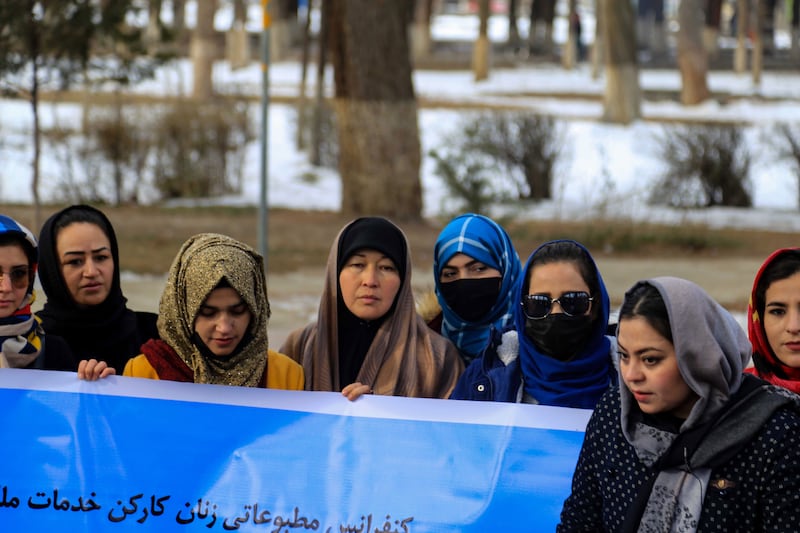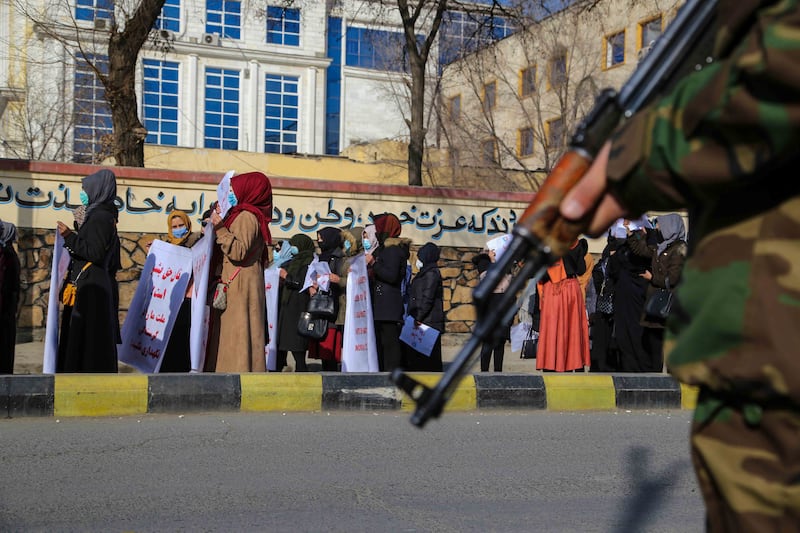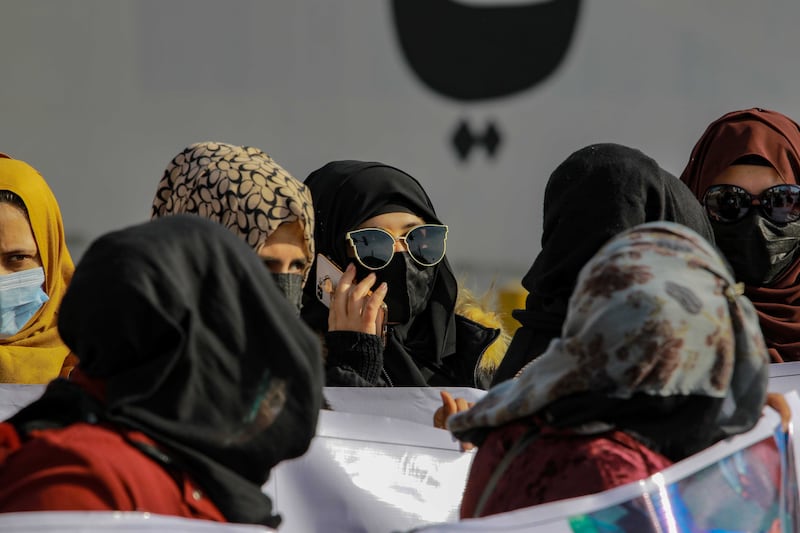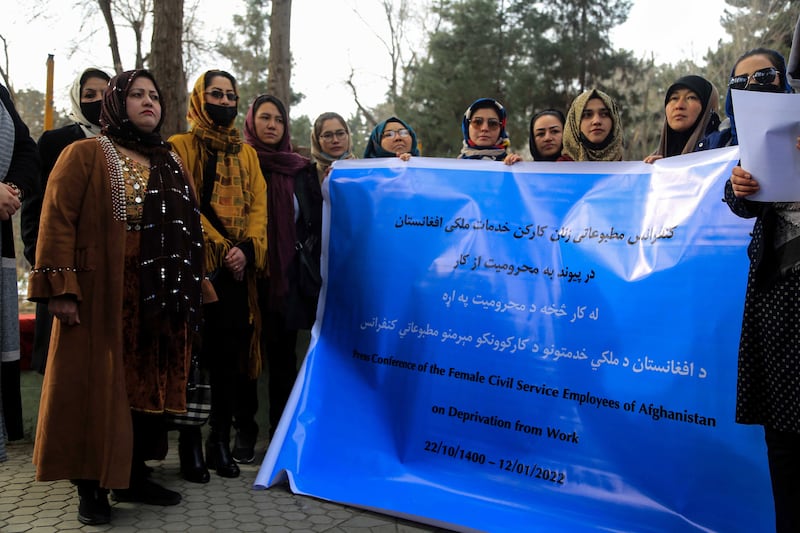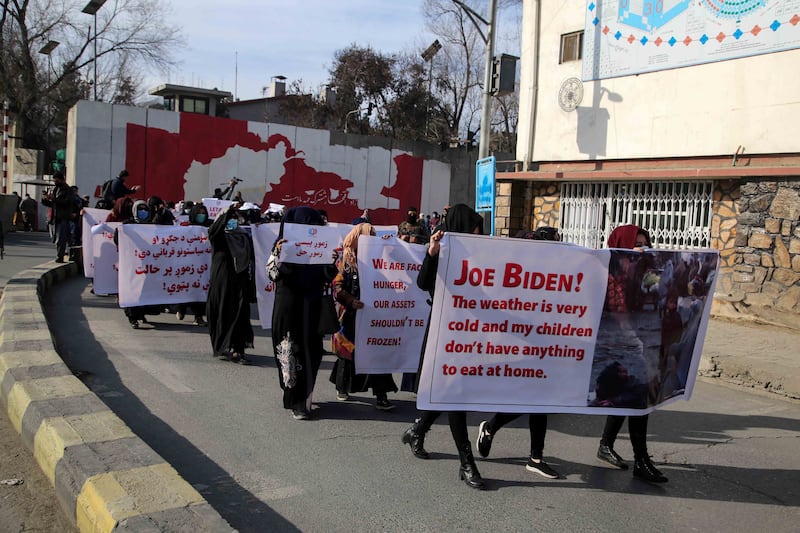A Foreign Office employee said the British government's response to the fall of Kabul was “chaotic” and probably cost lives, a tribunal has heard.
Following the Taliban's takeover of Afghanistan in August 2021, the British government evacuated 15,000 people from its capital, Kabul, in what was known as Operation Pitting.
However, the operation was widely criticised, with senior politicians being accused of failing to adequately prepare the evacuation of staff and Afghan-born former British Army personnel.
Josie Stewart, a former senior official at the Foreign, Commonwealth and Development Office (FCDO), was dismissed after an interview with the BBC in which she spoke about her “tragic experiences” while overseeing the operation.
On Thursday, Ms Stewart attended an employment tribunal against the department, in which she is alleging unfair dismissal for making a protected disclosure.
Documents supplied to the Central London Employment Tribunal read: “(Ms Stewart) believed that the Government’s mismanagement of the crisis caused huge amounts of avoidable suffering in Afghanistan and that it had probably cost lives.”
Ms Stewart also suggested the former prime minister Boris Johnson, the former foreign secretary Dominic Raab and other “political and civil service leaders” made misleading claims about the success of the evacuation efforts in Afghanistan and the performance of the crisis centre.
She said in some instances officials were deliberately “dishonest”.
The tribunal heard Mr Johnson was involved in an “outrageous” decision to allow animals and staff working for the charity Nowzad to use Kabul Airport that he subsequently publicly denied involvement with – an allegation Ms Stewart had put before the Foreign Affairs Select Committee in 2022.
Internal emails, to which Ms Stewart had access, demonstrated that Mr Johnson had been involved in the decision, her lawyers argued.
They added: “Demonstrating that the (Prime Minister) had intervened in a potentially life and death scenario to favour a less vulnerable group over a more vulnerable group, and then publicly denied doing so, is a matter of quintessential public interest.”

Mr Raab had told the same committee in September 2021 that he believed the crisis centre had met requirements, a comment Ms Stewart had suggested was “misleading” at a preliminary tribunal hearing last year.
Ms Stewart – whose anonymity was compromised after her unredacted emails were accidentally posted on social media – did not feel “safe” disclosing her concerns internally at the FCDO as she feared the department may have put “a black mark against my name”, tribunal judges heard.
Her lawyers said this left the whistleblower in an “impossible” situation as she believed it was in the public interest to speak out about how the Government had failed and subsequently attempted to “cover up” those failures.
In a witness statement referred to at an earlier preliminary hearing, Ms Stewart claimed she “witnessed denial, lies and the complete lack of accountability” while working on the Afghan crisis response.
Women protest against Taliban rule in Afghanistan – in pictures
Lawyers for the FCDO had previously challenged the admissibility of some of Ms Stewart’s evidence on the grounds that including parts of her witness testimony would breach article nine of the Bill of Rights 1689 and general principles of parliamentary privilege.
An FCDO spokesperson said: “The 2021 Afghanistan response was the biggest mission of its kind in generations and the second-largest evacuation carried out by any country – and we are proud of our staff who worked tirelessly to evacuate more than 15,000 people within a fortnight.
“We have learnt lessons from the evacuation and have seen the benefits of this work in our response to the Sudan and Niger evacuations, as well as in our response to Russia’s invasion of Ukraine and the ongoing situation in the Middle East.
“We have continued to provide assistance to those in Afghanistan, including bringing thousands more people to safety. We cannot comment further while legal proceedings are ongoing.”
The tribunal will continue until May 20.



